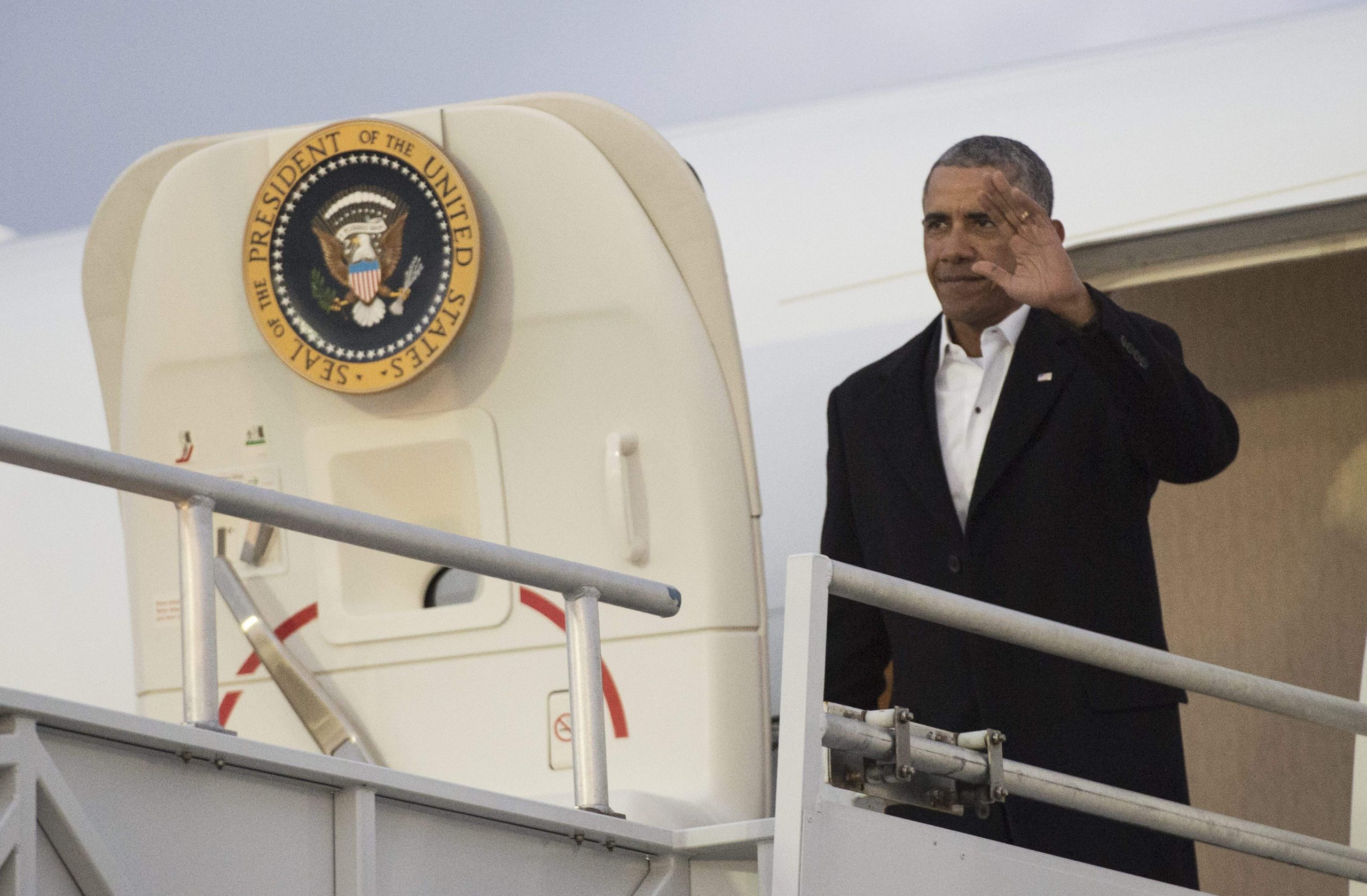
Barack Obama gives his farewell address as US president on Tuesday at McCormick Place in Chicago, the venue for his election night celebration in 2008. This will be the first time in US history that a president has returned to his hometown to deliver his goodbye speech to the nation, and Obama leaves office on a seven-year high approval rating of 56 per cent, according to Gallup.
In the past, farewell addresses have represented a legacy-defining opportunity for presidents to set out their accomplishments and articulate a vision for the future. In many cases, the outgoing head of state has focused in large part upon foreign affairs, especially in the post-war period of US international leadership, and this will be a key focal point of Obama’s speech.
Harry Truman, for instance, used his address in 1953 to talk about the emergence of the Cold War under his watch and noted the fact that he, “had hardly a day in office that has not been dominated by this all-embracing struggle, this conflict between those who love freedom and those who would lead the world back toward slavery and darkness”. He also outlined his rationale for using atomic weaponry in Japan.
Most recently, George W Bush defended his foreign policy and wider national security legacy in 2009. In the face of approval ratings of only around 34 per cent, he included Afghanistan no longer being ruled by the Taliban, and changes to the US security apparatus that he said contributed to the homeland avoiding attack in the seven years after 9/11.
Referring to his controversial calls, including the invasion of Iraq, he said: “You may not agree with some of the tough decisions I have made, but I hope you can agree that I was willing to make the tough decisions”.
Obama’s speech comes at a time when there has been rising criticism of his administration after Russia’s successful intervention in Syria to shore up the Assad regime, and the unravelling of the Trans-Pacific Partnership (TPP) which has caused angst with Asia Pacific allies. Many detractors assert Washington has become significantly diminished on the world stage with weak presidential leadership accounting for this.
However, this is too simplified. For instance, while Obama has not advanced as fully as he hoped his “pivot” to Asia-Pacific, it is actually President-Elect Donald Trump’s opposition to TPP that looks to have signed the death warrant to the trade deal, not the Obama team, which has cultivated it for years.
Meanwhile, while Obama has made multiple mistakes in the Middle East, his strategic decision to downscale US presence in the region was taken in the context of the mandate the President perceived himself to have won in his big election victory in 2008 – when a war-weary nation seemed to back his call that the Iraq conflict had been a costly mistake, and that the United States was militarily overstretched overseas during the Bush presidency.
More generally, critiques of Obama’s foreign policy often neglect that, while the United States remains the most powerful country in the world – certainly in a military sense – it is not an all-powerful hegemonic power. And this core fact has been demonstrated repeatedly before and after his presidency, from Somalia in 1993, Iraq and Afghanistan since 9/11, and also most recently in Ukraine and Libya.
Current international political fault lines – where there are no easy, quick-fix ways for the United States to enforce its policy preferences – include: tensions with China over the latter’s territorial claims in the South China Sea; the nuclear stand-off in the Korean peninsula that may yet intensify in the context of the political tensions in South Korea where the president has been impeached; continuing instability in Iraq, Afghanistan and Libya; the bleak prospects facing the Israeli-Palestinian peace process; and terrorism remaining a significant international concern a decade and a half after 9/11.
Critics of Obama’s foreign policy also often fail to acknowledge that, in the current fluid, complex and high-risk international political and economic landscape, the President has achieved some significant accomplishments. One big positive, for instance, is US leadership in tackling global warming, which led to the climate change deal agreed in Paris in 2015 signed by over 170 countries.
While the agreement is not perfect, and has been attacked by Trump, it represents a welcome shot in the arm for attempts to tackle global warming and, crucially, a new post-Kyoto framework has been put in place. And the deal has been ratified in record speed for such a big international accord, coming into effect last November.
Another example is the 2014 nuclear deal with Iran and six other powers – the United States, China, Russia, United Kingdom, France, and Germany. The agreement, which Trump has criticised, could enhance global nuclear security and also constitute an important win for longstanding efforts to combat nuclear non-proliferation.
Despite the President-Elect’s previous rhetoric, senior Republicans on Capitol Hill, including chair of the Senate Foreign Relations Committee Bob Corker, recognise the benefits the deal brings and have called for it be more strictly enforced, rather than scrapped.
Turning to the Americas, the Obama team has sought to reset relations with Cuba that Trump has threatened to reverse. In December 2014, the two countries announced they would restore diplomatic relations, and Obama became the first US president to visit the country in almost 90 years in March, announcing a new suite of measures that further eroded the bilateral sanctions regime introduced during the Cold War era.
Taken overall, Obama’s speech will robustly defend his foreign policy record at a time of growing criticism. While he achieved significant accomplishments, however, he knows much of his legacy now risks being rolled back, at least partially, by the incoming Trump team with its potentially very different agenda.





